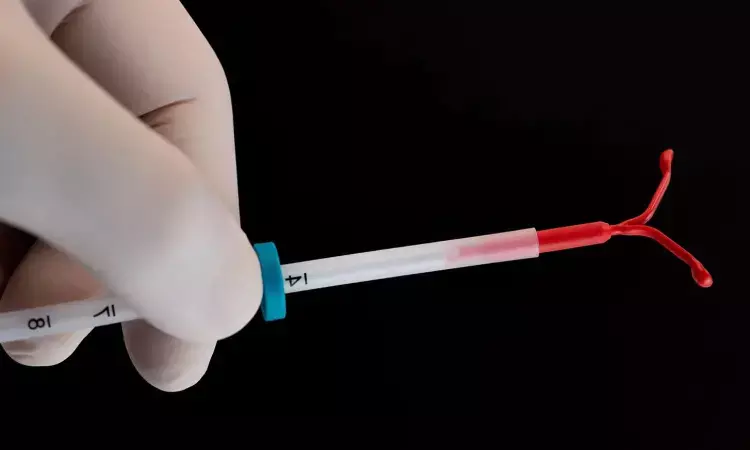- Home
- Medical news & Guidelines
- Anesthesiology
- Cardiology and CTVS
- Critical Care
- Dentistry
- Dermatology
- Diabetes and Endocrinology
- ENT
- Gastroenterology
- Medicine
- Nephrology
- Neurology
- Obstretics-Gynaecology
- Oncology
- Ophthalmology
- Orthopaedics
- Pediatrics-Neonatology
- Psychiatry
- Pulmonology
- Radiology
- Surgery
- Urology
- Laboratory Medicine
- Diet
- Nursing
- Paramedical
- Physiotherapy
- Health news
- Fact Check
- Bone Health Fact Check
- Brain Health Fact Check
- Cancer Related Fact Check
- Child Care Fact Check
- Dental and oral health fact check
- Diabetes and metabolic health fact check
- Diet and Nutrition Fact Check
- Eye and ENT Care Fact Check
- Fitness fact check
- Gut health fact check
- Heart health fact check
- Kidney health fact check
- Medical education fact check
- Men's health fact check
- Respiratory fact check
- Skin and hair care fact check
- Vaccine and Immunization fact check
- Women's health fact check
- AYUSH
- State News
- Andaman and Nicobar Islands
- Andhra Pradesh
- Arunachal Pradesh
- Assam
- Bihar
- Chandigarh
- Chattisgarh
- Dadra and Nagar Haveli
- Daman and Diu
- Delhi
- Goa
- Gujarat
- Haryana
- Himachal Pradesh
- Jammu & Kashmir
- Jharkhand
- Karnataka
- Kerala
- Ladakh
- Lakshadweep
- Madhya Pradesh
- Maharashtra
- Manipur
- Meghalaya
- Mizoram
- Nagaland
- Odisha
- Puducherry
- Punjab
- Rajasthan
- Sikkim
- Tamil Nadu
- Telangana
- Tripura
- Uttar Pradesh
- Uttrakhand
- West Bengal
- Medical Education
- Industry
Previous use of LNG-IUS associated with decreased endometrial growth in women undergoing IVF/ICSI: Study

Long-acting reversible contraceptive methods are among the most effective contraceptives available today and are an advantageous choice of contraception for women who wish to conceive in the future. Among these is the levonorgestrel intrauterine system (LNG-IUS), the use of which has increased in recent years. The LNG-IUS releases levonorgestrel locally, causing the cervical mucus to thicken, thereby decreasing spermatozoa motility, which creates a hostile environment for the spermatozoa. Further, it causes atrophy of the endometrium. The combination of these effects prevents fertilisation and implantation. As LNG-IUS is a reversible contraceptive method, removal should result in a return to baseline fertility. However, current literature on this topic is contradicting. While some studies have shown that the use of LNG-IUS does not affect the return to baseline/ normal fertility after removal, others have found delayed conception after removal. Endometrial development plays an essential role in achieving pregnancy, as a sufficient endometrial thickness (EMT) is needed for successful embryonic implantation into the uterine wall. A previous study investigated the effect of combined oral contraceptive pill (OCP) use on the endometrium and found that long-term use of OCPs may have a negative effect on endometrial growth.
As OCPs and LNG-IUSs are both hormonal contraceptive methods containing progestin, it can be hypothesised that the use of LNG-IUS may also affect endometrial growth and thereby fertility. Consequently, the objective of this study was to investigate whether previous use of the LNG-IUS negatively influences the EMT in women undergoing in vitro fertilisation (IVF)/intracytoplasmic sperm injection (ICSI) treatment.
This study was a register-based multicentre historical cohort study. The study has been reported in accordance with Strengthening the Reporting of Observational Studies in Epidemiology (STROBE).
It was a Multicentre historical cohort study from eight Danish public and private fertility clinics. 12786 women aged 18–46 years contributing with an EMT measurement from 22464 different IVF/ICSI treatment cycles between 2000 and 2021 were taken. Exposure was previous use of LNG-IUS, combined oral contraceptive pills (OCPs), progesterone -only pills (POPs), no/ other contraception or combined, cumulated use of contraception when more contraceptives had been used during the inclusion period. Further, ever use of LNG-IUS was categorised into 0–3 years, > 3–6 years, > 6–9 years and >9 years. Mixed effect logistic regression adjusted for age, BMI, smoking, educational level, total FSH dose and fertility clinic was used.
Statistically significantly higher odds of EMT ≥7mm were found for OCPs [odds ratio (OR) 3.53 (95% confidence interval (95% CI) 1.29–9.65)], POPs [OR 6.43, (95% CI 1.45–28.63)] and no/other contraception [OR 6.67, (95% CI 2.37–18.74]) relative to LNG-IUS in IVF/ICSI cycles. Further, all duration categories of ever use of LNG-IUS were associated with statistically significantly lower odds of obtaining an EMT ≥7mm compared to no/other contraception.
In this study, previous use of LNG-IUS was associated with statistically significantly lower odds of obtaining an EMT ≥7mm when compared to other contraceptive methods in IVF/ICSI cycles. Further, authors found a statistically significant association between ever use of LNG-IUS and a thin endometrium compared to no/other previous use of contraceptives regardless of the duration of use.
In conclusion, this study showed that previous use of LNG-IUS might have a negative impact on the EMT in IVF/ICSI cycles. However, authors acknowledge that this present study has limitations, which should be considered when interpreting the results. Future research should accommodate these limitations to create evidence-based knowledge on the potential prolonged negative impact of LNG-IUS on the endometrium and its receptivity in IVF/ICSI cycles.
Source: Mette Peters Michaelsen; Laura Cæcilie Nielsen; Michelle Poulsen; BJOG: An International Journal of Obstetrics & Gynaecology, 2025; 0:1–8 https://doi.org/10.1111/1471-0528.18295
MBBS, MD Obstetrics and Gynecology
Dr Nirali Kapoor has completed her MBBS from GMC Jamnagar and MD Obstetrics and Gynecology from AIIMS Rishikesh. She underwent training in trauma/emergency medicine non academic residency in AIIMS Delhi for an year after her MBBS. Post her MD, she has joined in a Multispeciality hospital in Amritsar. She is actively involved in cases concerning fetal medicine, infertility and minimal invasive procedures as well as research activities involved around the fields of interest.


